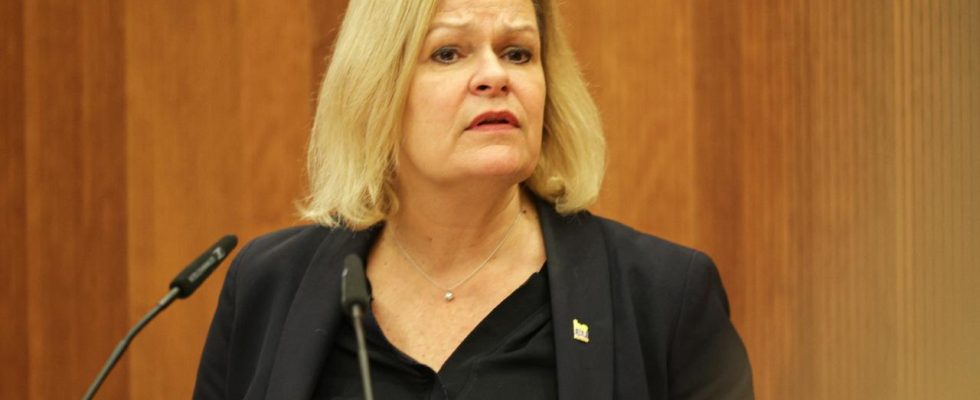Asylum policy is causing tension before the federal-state meeting. NRW Prime Minister Wüst criticized the traffic light government for its “inaction”. Interior Minister Faeser, however, referred to a legislative package that had been passed.
Ahead of the talks on asylum policy between Chancellor Olaf Scholz and the Prime Minister planned for Wednesday, the federal and state governments are blaming each other for the lack of progress. The implementation of important decisions that were agreed upon at the previous meeting in November failed due to the “inaction of this federal government,” said North Rhine-Westphalia’s Prime Minister Hendrik Wüst to the Germany editorial network.
The decisions were made 17 weeks ago, said the CDU politician. Since then, a lot of things have not been “processed”. The acceleration of asylum procedures for people from countries with low recognition rates, the further strengthening of the European border agency Frontex, the renewal of the EU-Turkey agreement, the examination of whether asylum procedures outside Europe would be possible, as well as migration agreements with important ones were not implemented or were only partially implemented Countries of origin of asylum seekers. Cities and communities suffered as a result, as did refugees who needed help, criticized the NRW head of government.
“Countries can now use regulations”
Federal Interior Minister Nancy Faeser, on the other hand, holds the federal states accountable. “This Prime Minister’s Conference is important in order to put into practice at the federal, state and local levels the new foundations we have created to control and limit migration,” the SPD politician told the Süddeutsche Zeitung.
The legislative package with “restrictive regulations for more and faster returns” has been passed. “The countries responsible for returns can now use these regulations. They will receive all support from the federal police,” said Faeser.
The reform provides the authorities with more options for finding people who have to leave the country and preventing them from going into hiding. For example, the maximum duration of detention on departure will be extended from the current ten days to 28 days. In addition, officials in shared accommodation should also be allowed to enter rooms other than the room of the person being deported.
Union politician demand clearer rules
At the weekend, Bavaria’s Prime Minister Markus Söder (CSU) and Hesse’s Prime Minister Boris Rhein (CDU) once again called for clearer and tougher rules in asylum policy from the federal government and Chancellor Scholz.
Faeser also sees the states as having a responsibility to achieve higher speeds. “With 1,160 additional staff at the Federal Office for Migration and Refugees and an additional 300 million euros for the digitalization and acceleration of asylum procedures, we are showing that we are picking up the pace,” said Faeser about the federal government’s efforts. “This has to happen at all levels, including in the immigration authorities of the federal states.”
Around 329,000 people made an initial application for asylum in Germany last year – around 50 percent more than in the previous year. The majority of the more than one million refugees from Ukraine who have come to Germany since the war began at the end of February 2022 are not included in the current statistics because they do not have to apply for asylum.

